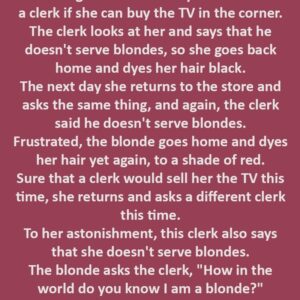The day I buried Emily, all I had left were our photos and memories. But that night, when something slipped from behind our engagement picture, my hands trembled. What I found made me question if I had truly known my wife at all.
The funeral home had tied a black ribbon to our front door. I stared at it, the key suspended in the lock, wondering who thought it was necessary.
As if the neighbors didn’t already know I’d spent the afternoon at the cemetery, watching them lower my wife into the ground while Rev. Matthews spoke of angels and eternal rest.
My hands were unsteady as I finally turned the key. The house smelled wrong—like leather polish and sympathy casseroles.
Emily’s sister, Jane, had “helped” by cleaning while I was at the hospital in those final days. Now everything shone with an almost unnatural brightness, sharp enough to make my teeth ache.
“Home sweet home, right, Em?” I said, but caught myself. The silence that followed felt like a punch to the gut.
I loosened my tie, the one Emily had bought me last Christmas, and kicked off my shoes. They thudded softly against the wall.
Emily would have scolded me for that, her lips pressed together as she tried to stop herself from smiling while she lectured me about scuff marks.
“Sorry, honey,” I muttered, leaving the shoes where they landed.
Our bedroom felt worse than the rest of the house. Jane had changed the sheets—likely trying to help—but the fresh linen smell only emphasized that Emily’s scent was gone.
The bed was perfectly made with hospital corners, every crease erased, wiping away the casual mess that had been our life.
“This isn’t real,” I whispered to the empty room. “This can’t be real.”
But it was. The sympathy cards on the dresser proved it. As did the pills on the nightstand that hadn’t been enough to save her.
It had all happened so fast. Emily got sick last year, but she fought it. The chemotherapy took everything from her, but she made it through. We thought we had won. Then came the check-up. The cancer had come back, and it had spread everywhere.
Em fought like a lion, right until the very end. But now, I could see it was a battle she couldn’t win.
I collapsed onto her side of the bed, not bothering to change out of my funeral clothes. The mattress didn’t hold her shape anymore. Had Jane flipped it? The thought made me irrationally angry.
“Fifteen years,” I whispered into Emily’s pillow. “Fifteen years, and this is how it ends? A ribbon on the door and casseroles in the fridge?”
My eyes landed on our engagement photo, the silver frame catching the late afternoon light. Emily looked so alive in it, her yellow sundress bright against the summer sky, her laugh captured mid-spin as I twirled her around.
I grabbed the photo, needing to be closer to that moment—the joy we had both shared.
“Remember that day, Em? You said the camera would capture our souls. You hated having your picture taken because—”
My fingers caught on something behind the frame.
There was a bump under the backing, something that shouldn’t have been there.
I traced it again, frowning. Without thinking, I pried the backing loose. Something slipped out, drifting to the floor like a leaf.
My heart stopped.
It was another photo, old and slightly curved, as though it had been handled often before being hidden away.
In the picture, Emily—God, she looked so young—sat in a hospital bed, cradling a newborn wrapped in a pink blanket.
Her face was different than I’d ever seen it: tired, scared, but filled with a fierce love that took my breath away.
I couldn’t understand what I was seeing. Emily and I had tried to have kids, but we never could. So whose baby was this?
I flipped the photo over. Emily’s handwriting—shaky, more fragile than I’d ever seen—read: “Mama will always love you.”
Beneath that, a phone number.
“What?” My voice cracked, barely above a whisper. “Emily, what is this?”
There was only one way to find out.
The phone felt heavy in my hand as I dialed, not caring that it was nearly midnight. The rings echoed in my head like tolling bells.
We spent hours talking. She showed me pictures of her college graduation, her first classroom, and her cat. I told her stories about Emily, our life together, and the woman her mother had become.
“She used to send me birthday cards every year,” Lily said, wiping a tear. “We never spoke, but Mom would call to ask how I was doing.”
Looking at this beautiful, brilliant young woman, I began to see Emily’s secret in a new light.
It wasn’t just fear or shame that kept her silent. She had been protecting Lily, ensuring she had a safe, stable life with Sarah. It must have torn Emily apart to keep this secret, but she did it out of love.
“I wish I had known sooner,” I said, reaching for Lily’s hand. “But I understand why she didn’t tell me. I’m so sorry you didn’t get to know her, but I want you to know, I’ll always be here for you, okay?”
Lily squeezed my hand. “Do you think… could we maybe do this again? Get to know each other better?”
“I’d like that,” I said, feeling something warm stir in my chest for the first time since Emily’s death. “I’d like that very much.”
That night, I placed the hidden photo next to our engagement picture on the nightstand.
Emily smiled at me from both frames—young and old, before and after—her love always shining through.
“You did good, Em,” I whispered. “You did real good. And I promise, I’ll do right by her. By both of you.”





